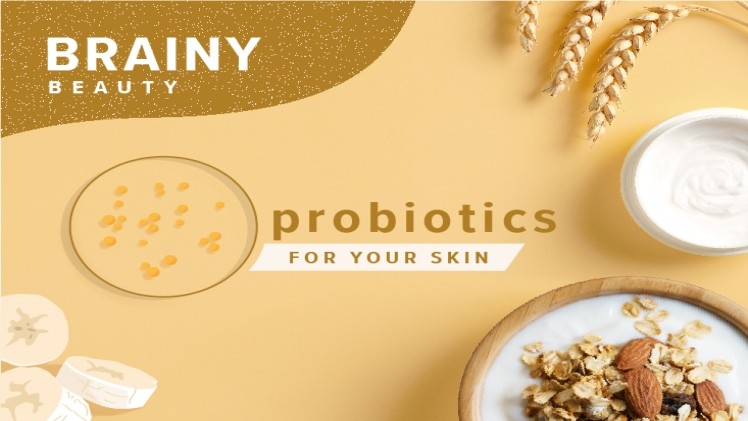
Contents
How Do Probiotics Improve Skin?
Probiotics improve skin by helping with eczema, acne, skin aging, and other problems.
Probiotics provide benefits to gut health and can fight illnesses. They can also have a positive impact on the skin microbiota. Many probiotic skincare products are available on the market to address common skin issues such as acne, eczema, and signs of aging.
The World Health Organization (WHO) and the Food and Agriculture Organization (FAO) define probiotics as living organisms that offer health benefits when consumed in the right amount. These beneficial microorganisms are found naturally in fermented food products like kimchi, pickles, and kefir, as well as in the human body’s microbiome.
The microbiome refers to the diverse community of microorganisms, including bacteria, fungi, yeast, protozoa, and viruses, that exist in various parts of the body. Each part of the body has its own unique microbiome, such as the gut microbiome and the skin microbiome.
Contrary to common belief, not all microorganisms are harmful. The majority of microbes in the microbiome are actually beneficial and perform essential functions in the body. They contribute to the production of vitamins, fight against disease-causing microbes, and aid in digestion.
Probiotic products contain similar beneficial microorganisms to those naturally found in the body. This is why they are considered healthy and are a popular choice for skincare products targeting the microbiome.
How do probiotics improve your skin?
The skin has its own microbiota, consisting of millions of bacteria, viruses, and fungi. Some of these microorganisms can cause skin infections and various skin conditions, while others are harmless or even beneficial. The good microbes help maintain a healthy immune system and protect the skin by forming a barrier against harmful bacteria.
An imbalance in the skin microbiota can occur due to factors such as an unhealthy diet, stress, chronic inflammation, and changes in skin pH levels. This imbalance, known as dysbiosis, can contribute to acne, eczema, chronic wounds, and other skin conditions. Using probiotic skincare products can help restore the balance of the skin microbiota by supporting the growth of beneficial bacteria.
Which skin problems can probiotics help with?
Although research on probiotic skincare is still limited, early studies suggest that probiotics, whether taken orally or applied topically, can help with certain skin conditions:
Eczema: Probiotic bacteria such as Lactobacillus johnsonii have shown potential in combating the bacteria that contribute to eczema. Probiotics that increase ceramide levels in the skin can also be beneficial for eczema.
Acne: Both topical and oral probiotics have been found to help reduce acne. Specific bacterial strains like Streptococcus and Lactococcus have antimicrobial properties that can combat acne-causing bacteria.
Skin aging: Probiotics containing strains like Lactobacillus and Bifidobacterium have been shown to address factors associated with skin aging, including changes in skin pH, sun damage, and oxidative stress.
Psoriasis: Limited research suggests that some oral probiotics may have potential in treating psoriatic conditions, but further studies are needed.
Wound infections: Topical probiotics, such as Lactobacillus plantarum, have shown promise in aiding wound healing and preventing infections.
Which probiotics are best for the skin?
When selecting a skincare product targeting the skin’s microbiome, consider looking for probiotics that include the following strains:
- Lactobacillus: Known for reducing redness and acne
- Bifidobacterium: Suitable for dry, irritated skin or eczema
- Vitreoscilla: May help maintain skin moisture
- Streptococcus thermophilus: Beneficial for increasing ceramide levels in sensitive skin or eczema
- Bacillus coagulans: May assist with skin aging
- Staphylococcus epidermidis: Known for inhibiting the growth of infection-causing bacteria on the skin
How to use probiotics for skin care
Probiotics can be taken orally as supplements or applied topically as creams or other skincare products. The research on topical probiotics is still in the early stages, but they have shown potential in modulating the skin microbiota and providing protection against harmful microbes.
When using topical probiotics, follow these steps:
- Perform a patch test to check for any allergic reactions before applying the product to your entire face.
- Observe if the probiotic causes any itching or inflammation. Allow sufficient time for the product to show visible effects.
- Introduce one probiotic product at a time to better identify any reactions.
- Consider using leave-on probiotic skincare products for more significant effects.
It’s important to note that while probiotics generally have a good safety profile, individuals with compromised immune systems may face some risks. Additionally, allergic reactions and minor digestive issues can occur. Consult a healthcare professional if you have any concerns.
References:
1. Clinical Infectious Diseases: "Risk and Safety of Probiotics."
2. Dermatology and Therapy: "Topical Probiotics in Dermatological Therapy and Skincare: A Concise Review."
3. Dermatology Online Journal: "Topical probiotics: the unknowns behind their rising popularity."
4. European Journal of Dermatology: "Improvement of atopic dermatitis skin symptoms by Vitreoscilla filiformis bacterial extract."
5. Frontiers: "Skin Microbiome – The Health Benefits of Probiotics."
6. International Journal of Immunopathology and Pharmacology: "Increase of skin-ceramide levels in aged subjects following a short-term topical application of bacterial sphingomyelinase from Streptococcus thermophilus."
7. International Journal of Women’s Dermatology: "The effect of probiotics on immune regulation, acne, and photoaging."
8. Journal of Drugs in Dermatology: "Anti-Aging Effects of Probiotics."
9. National Human Genome Research Institute: "Microbes and Microbiomes."
10. Nature Reviews Microbiology: "The human skin microbiome."
11. Pharmaceutics: "Topical Probiotics: More Than a Skin Deep."
12. Pharmaceutics: "Topical Probiotics: More Than a Skin Deep."


